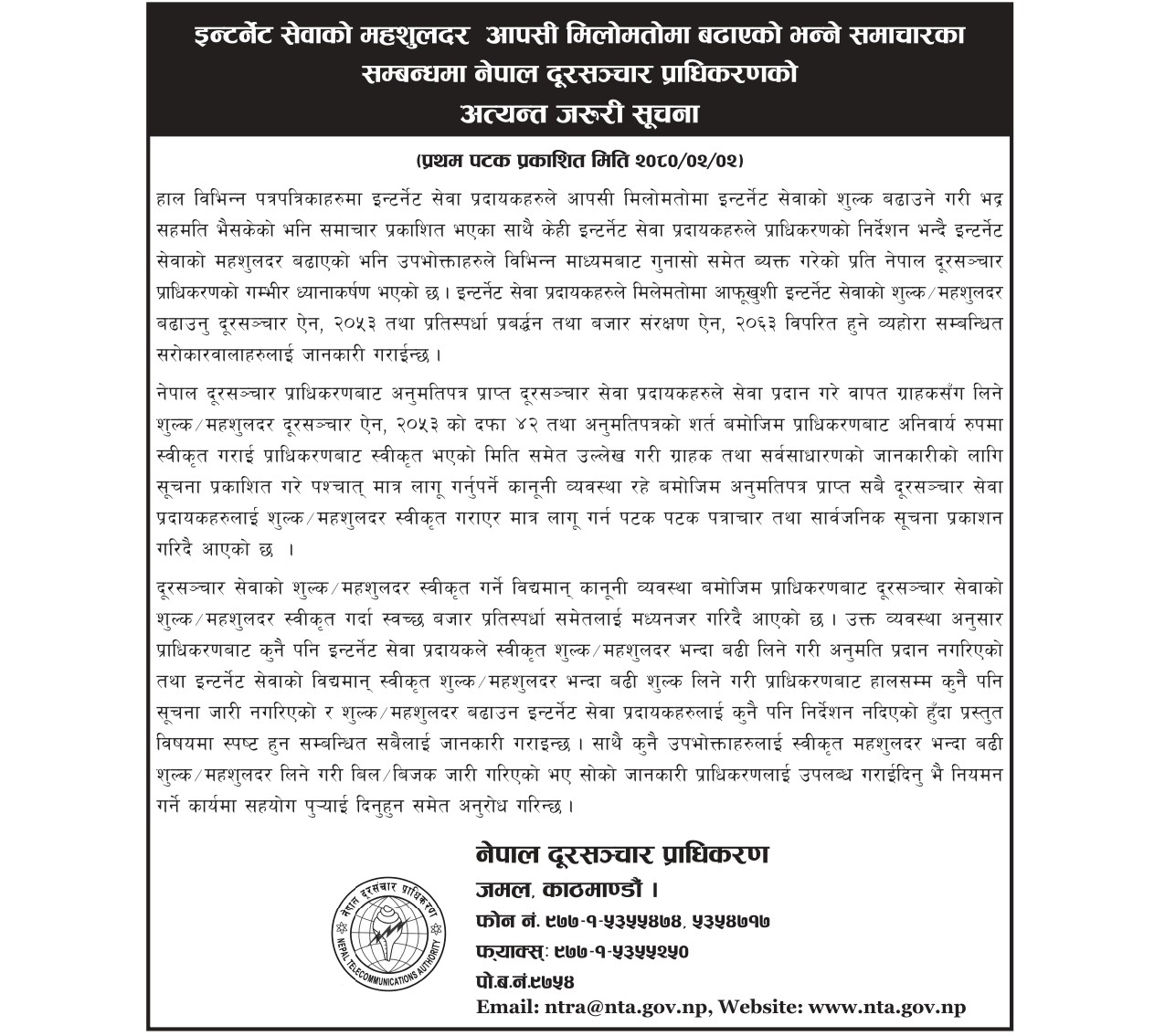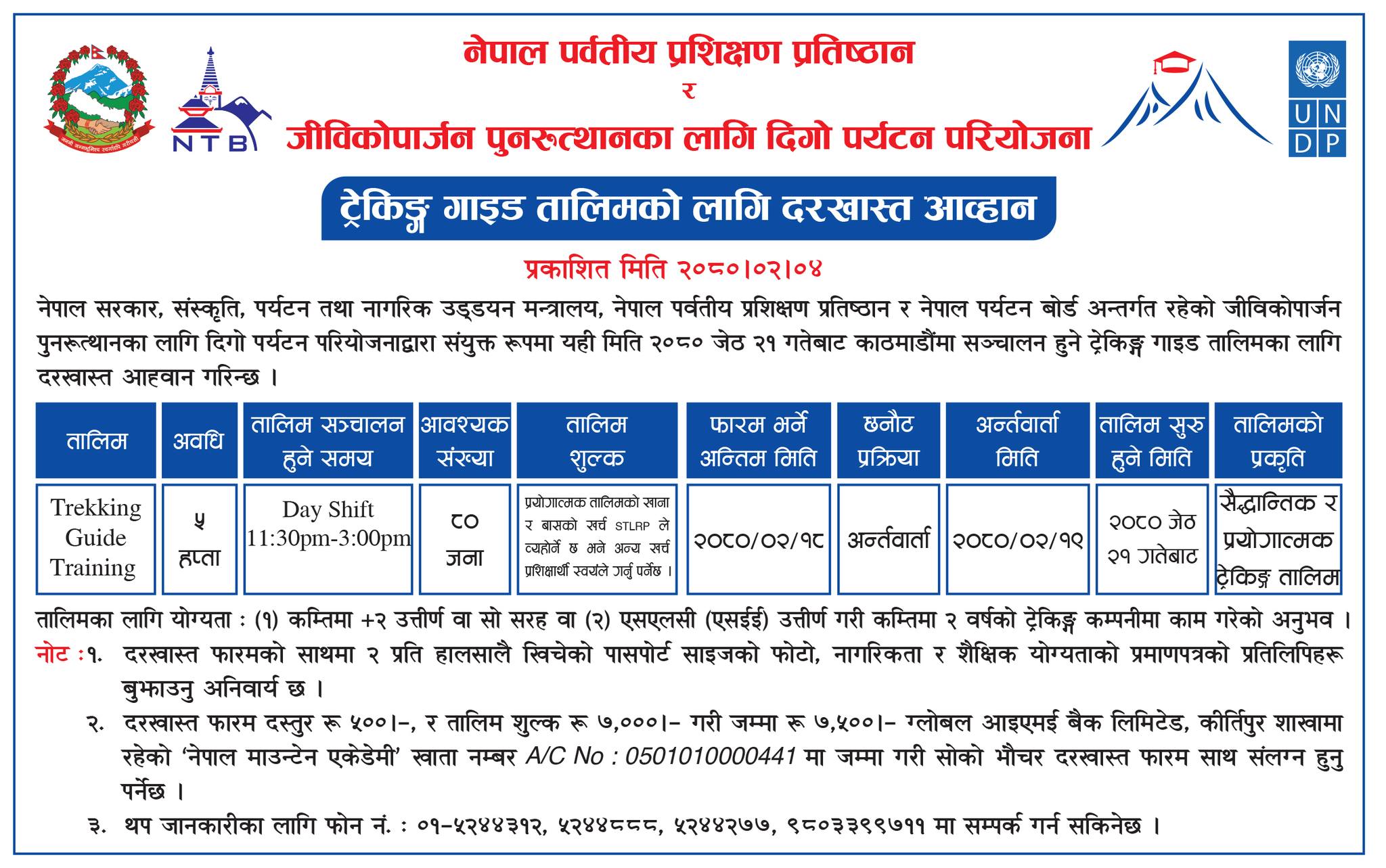27 June, Kathmandu. On January 3, 2079, when Rekha Sharma was entering the Ministry of Communication and Information Technology as a minister, Nepal Telecom’s mobile and telephone services were disrupted across the country. Sharma herself was the victim when the service was interrupted for about 2 hours due to the problem of the ‘billing system’ by Telecom.

The problem of the billing system was covered up after the instructions were given immediately after assuming office. However, on June 10, the service at Telecom was also interrupted. Again, the reason for the service to stop was the problem with the billing system.
During Rekha Sharma’s tenure of about one and a half years, the contract for the new billing system at Telecom has already been called, but there has been confusion when the bid was called by maintaining the dollar value during the study. This indicates that the fascination with the old billing system, which was controversially preserved by tender variation within the telecom, has not ended.
This is only a representative incident; if we look at the details of the major works done by Sharma in the Ministry of Communication, the improvement in information technology-related services was not his priority. Minister Sharma was also not interested in extending Nepal Telecom’s 4G service across the country, making the service effective, or starting 5G service. His tenure was politically motivated and limited to general duties.
Minister Sharma did not dare ask Sunil Poudel, the previous managing director of Nepal Telecom, for an explanation, even though many questions were raised about the working style and functionality. Paudel left Telecom only after the Commission for Investigation of Abuse of Authority filed a case regarding the purchase of the National Payment Gateway.
During the one-and-a-half-year tenure of Minister Sharma, the citizens could not feel the improvement in the services of the government-owned Nepal Telecom, and the distortions within the organization increased. Instead, the decisions of the Telecom Board of Directors, chaired by the Secretary of the Ministry of Communications, continued to be disputed.
During this period, Minister Sharma imposed unnecessary pressure on the service provider companies in the name of strengthening the regulatory role of the Ministry. As a result, instead of improving, telephone and internet services have gone downhill.
Due to the fact that the tax dispute with the Internet company should be resolved according to the law, she stopped the recommendation of the foreign currency to be paid to the foreign company for Internet bandwidth so that the service itself would be interrupted.
As a result, there will be no competition in the Internet market, services will become more expensive, the competitive ability of small companies will decrease, and an environment will be created where limited companies will create a monopoly in the market.
In such a situation, the Ministry of Communication and Information Technology did not work to improve the internet service of the government, Nepal Telecom, which is an alternative.
Until recently, the main focus of the Minister of Communications was on removing the then Chairman of the Nepal Telecommunication Authority, Purushottam Khanal, who played a controversial role in various procurement processes, and making Bhupendra Bhandari, who is close to him, the Chairman. In the same serofero, reports were prepared about the activities of the authority by forming committees within the ministry.
Khanal, who was embroiled in a controversy last December, resigned from the post after he could not withstand the pressure of Minister Sharma. After that, Minister Sharma appointed her information technology advisor, Bhandari, who has a dubious past, as the chairman of the regulatory body authority through a fake competition.
Although Bhandari came under the leadership of the authority, he did not proceed with the action, according to the study and research report conducted by the ministry about the work of the previous leadership. In the meantime, the Ministry of Communication and Information Technology and the Telecommunication Authority could not take strict action in the case of Ncell’s controversial sale of share ownership.
Instead, the minister’s eyes were drawn to the appointment of a new managing director at Telecom. He said Dr. Bimal Acharya was made the Managing Director of Telecom and changed the guidelines for the appointment of the Managing Director of Telecom.
However, due to the Prime Minister’s desire to make Anil Kumar Jha the Managing Director, she confused the recommendation process by taking the application.
Communication Secretary Ramakrishna Subedi did not help Minister Sharma send the proposal to the Council of Ministers after the change of power equation and the change of government. Now she has reached a situation where she has to leave without appointing her candidate in Telecom.
Minister Sharma spent more on banning in the name of regulation than on reforming energy services. Minister Sharma also took the lead in banning ‘Tiktak’, which is popular among the general public in Nepal, on the grounds that it has provoked social harmony.
Even though Tiktok repeatedly promised to obey the laws of Nepal, she did not want to open the ban. This step by the government has made it clear that freedom of speech, digital rights, and overall human rights are weakening in Nepal.
Minister Sharma said in every public speech that his ministry and subordinate agencies kept failing to provide innovation in service delivery along with innovation and progress-oriented programs.
There was no significant progress despite work such as increasing electronic signatures, adding services to citizen apps, maintaining uniformity in the websites of government offices, providing low-cost government servers, storage, and networks, and conducting security audits of government systems.
Even though the procurement process is in controversy, the ministry did not move forward to prepare the environment to use systems like MDMS and Teramox, which have been a huge investment for the state, by making necessary legal and policy arrangements.
In addition, Minister Sharma could not stand firmly in favor of strongly implementing policies and regulations, such as the clean feed of television services, that the government had brought and announced for implementation.
Communication Minister Sharma, who talks about the possibility of information technology exports from Nepal in every speech, did not show interest in making policy and legal arrangements to encourage that sector.
Minister Sharma’s initiative to implement the ‘Digital Nepal Framework’, which was announced in 2076, was also weak. The government is still focused on increasing the use of information technology in agriculture, health, education, energy, tourism, finance, and urban infrastructure, including digital foundations. At the same time, the Ministry of Communication could not even take a general initiative to promote digital literacy and reduce the digital divide.
The work of laying the stranded optical fiber by advancing the Madhyapahari Lokmarg as an information highway is still slow. From providing broadband services to all local level centers and ward centers, the work of highway coverage on East-West Highway and North-South Highway has not been satisfactory.
Sharma’s office did not work on the security, use, and regulation of private sector data centers, including the installation of Nepal’s own satellite.
No decision was made during Sharma’s tenure regarding the review of the minimum wage for working journalists. The subject of the restructuring of Nepal Television and Radio Nepal remained the same.
I made policies and laws and did not listen to questions.
Minister Sharma’s legal defense in court against the attempts of internet service providers to evade taxes was commendable. Minister Sharma tried to remove the hindrances of structural reforms and restructuring due to decades-old legal and policy arrangements.
Since communication and information technology are new and dynamic, he emphasized the importance of making and revising policies and laws based on the belief that the laws that regulate and guide them should be updated regularly.
Minister Sharma took the lead in issuing Frequency Policy 2080 by revising Frequency Policy 2069 (Amendment 2073) to discourage the trend of hoarding frequency licenses, not paying revenue to the state, and not working. Accordingly, the policy of technology neutrality will become applicable on July 1, 2081.
During the tenure of the minister, the property management regulations of telecommunication service providers whose licenses are not valid have also been amended, and it has been arranged that the radio frequency will be returned automatically. However, many questions remain even after this amendment. In the name of managing the assets and liabilities of the closed service providers, the risk of imposing the liability of the bankrupt companies on the government has not yet abated.
The Advertisements (Regulation) Rules, 2080, have been amended to prevent increased leakages in government advertisement transactions. The Alcarta price system has been implemented in television broadcasting to end the situation of charging arbitrary fees to television consumers. However, there are still problems with its implementation.
After the Tiktok ban, policies and laws, including the Guidelines for Regulating the Use of Social Networks, 2080, and the National Cyber Security Policy, 2080, have been approved. There is a possibility that the provisions laid down in the guidelines for regulating social networks will be misused to attack the freedom of citizens. However, so far, the government has not faced any major opposition, as it has not taken any drastic measures based on it.
The Security Printing Bill has been passed by Parliament. This has opened the way to make the Suraksha Printing Center, which became controversial due to corruption, more organized.
The Public Service Broadcasting Bill is pending in the Parliamentary Committee of the Federal Parliament. Drafts of the Nepal Media Council Bill, the Mass Media Bill, and the Social Media (Management and Regulation) Bill have been prepared and sent to various ministries for their opinion.
A draft of the Telecommunication Bill and Information Technology Bill has also been prepared. A bill related to managing the film sector has also been prepared and is under public discussion. Final preparations are being made to issue the National Advertising Policy, 2080. The draft is also in the process of preparing and taking opinions to make contemporary amendments to the Additional Postal Regulations, 2034.
Minister Sharma has taken steps to restructure the National Information Technology Center and manage it so that it is under the direct supervision of the government after the increase in cyber attacks on government data centers.
After the increase in cyber attacks, the National Cyber Security Policy has been released for the first time. Based on this, final preparations are being made to establish the necessary laws related to cyber security and the National Cyber Security Center.
He cut the posts of around 1600 redundant employees in the postal service. However, he did not focus on modernizing the postal service. Despite the announcement to start reforming the postal service, it did not work.
Minister Sharma has started efforts towards legal and structural arrangements for technologies like robotics and artificial intelligence (AI). She has prepared and approved a concept paper on the use and practice of AI in Nepal.
Even the reforms he made in the laws are based on prohibition rather than regulation, experts allege. Advocate Pravin Subedi, an expert in cyber law, says that the government is trying to be exceptionally strengthened in the latest policy and law drafts brought by the Ministry of Communications. He said that the system to balance the power that the government gets from such regulatory arrangements is not included in the policies and laws.
“For example, if a service had to be closed, they did not look at international law, practice, and recognition; they tried to make the government active and powerful.” Subedi said, “Contrary to international human rights principles and practice, they did not even try to establish the practice of judicial permission.”
Subedi said that this has made the government arbitrary, and although there is no immediate effect, there is a danger that such laws will be misused in the future. He said that when the law was made without considering the judicial aspect, the decision of the Ministry of Communication was litigated in court.
Advocate Subedi says that some of the decisions made by the ministry have affected foreign investment as well.
“The government faced problems and went down the road of ban, regulation, and management, which were forgotten,” he said. “This sent a message that internet freedom and human rights are not good in Nepal from the outside.” Source: Onlinekhabar














